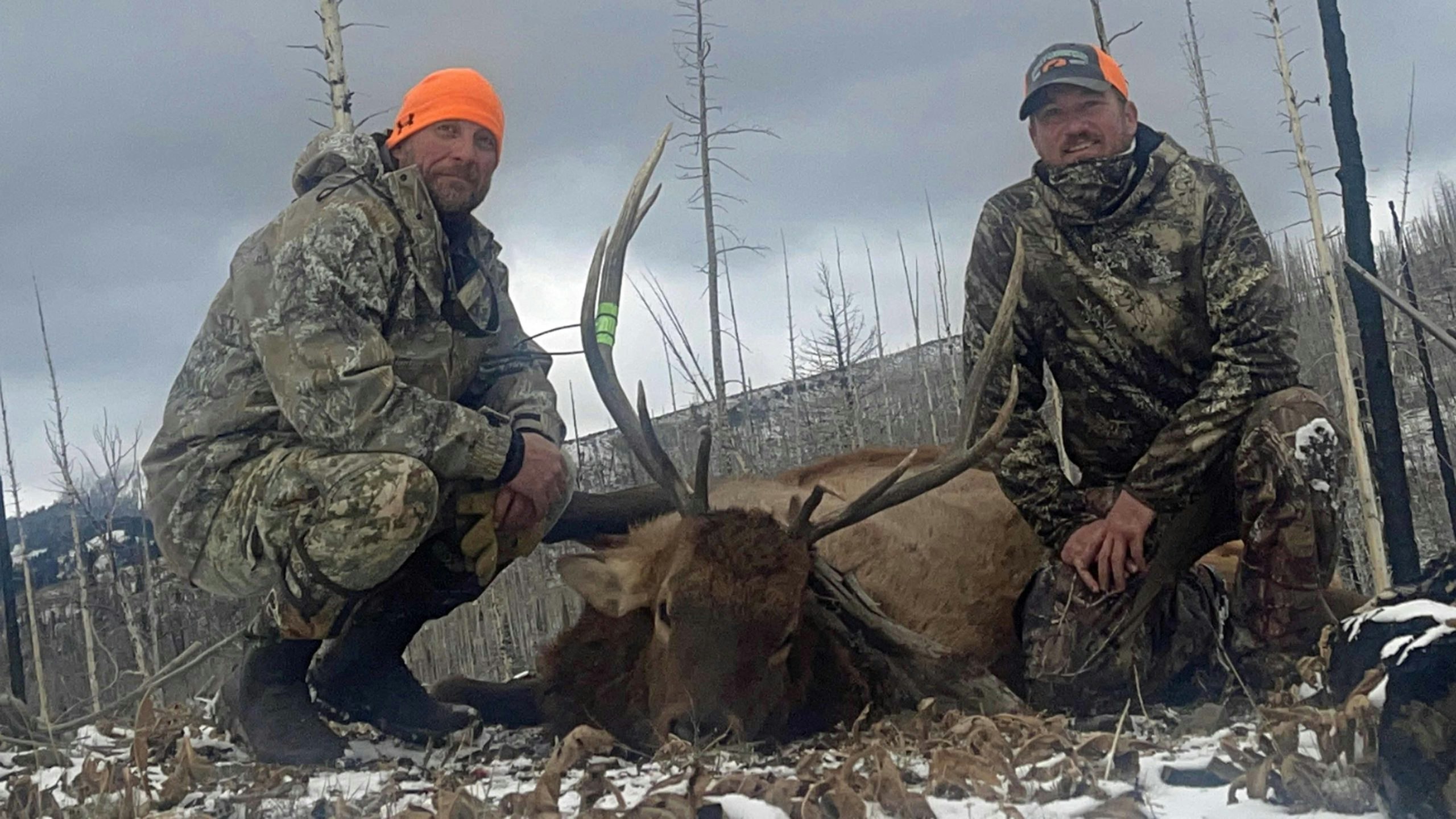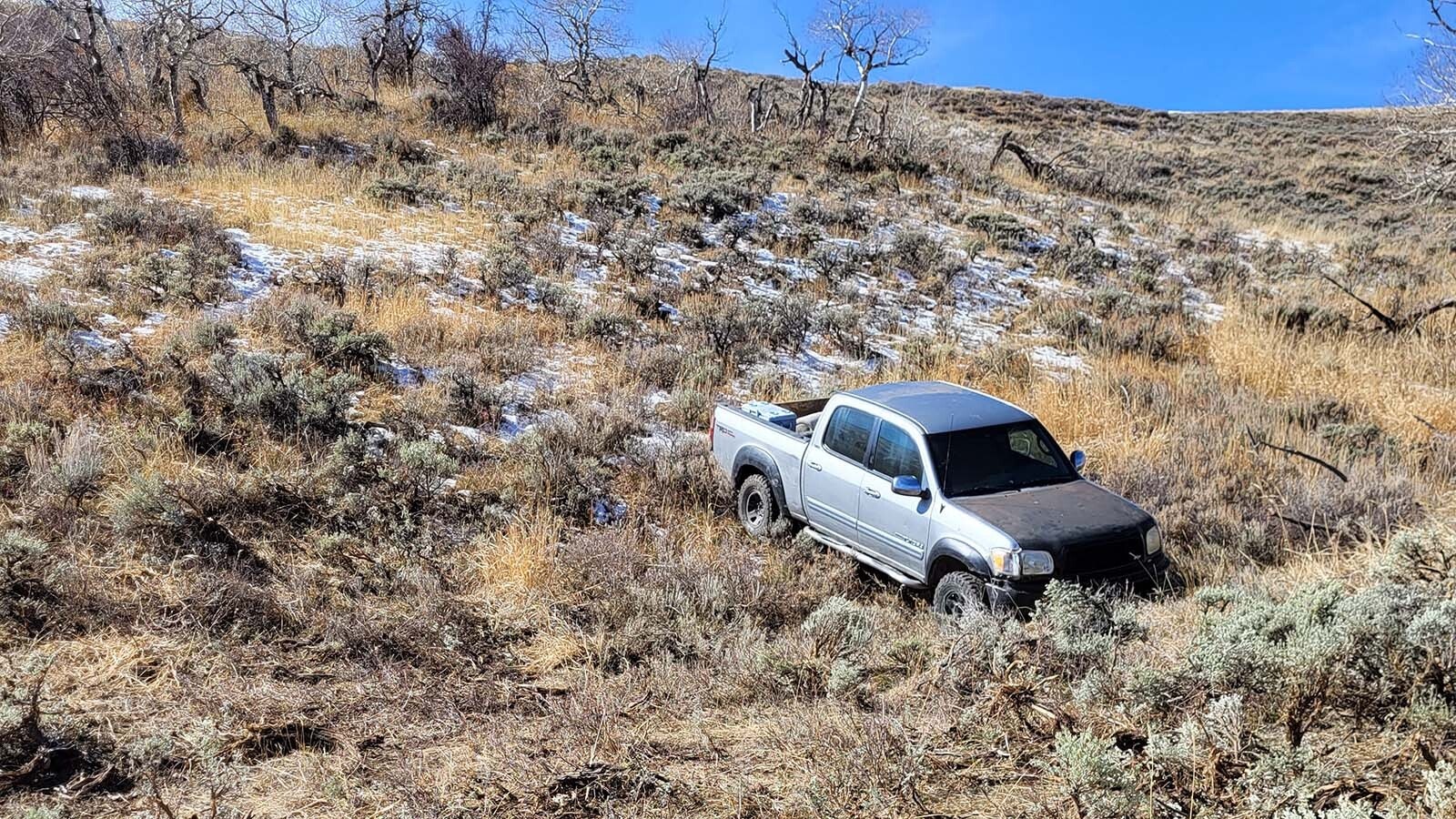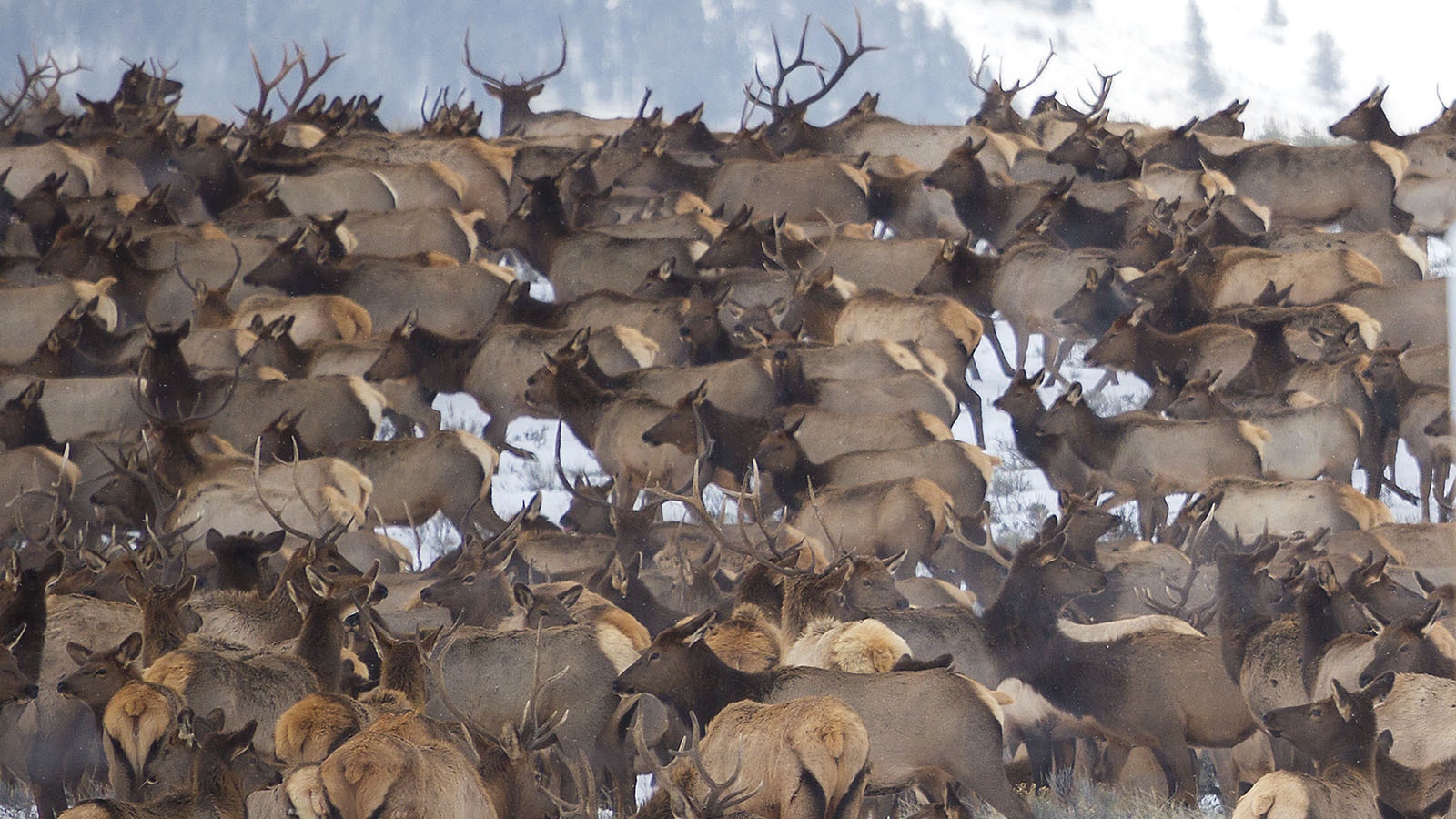By Joshua Wood, Cowboy State Daily
josh@cowboystatedaily.com
A proposal by the Wyoming Wildlife Task Force to create a dedicated license pool for out-of-state big game hunters who use professional guides is likely “dead in the water,” according to a Wyoming legislator.
In a July 7 meeting, the task force proposed several changes to Wyoming big game hunting regulations. One of the most contentious would recommend the legislature create a dedicated license pool for non-resident hunters using outfitters.
The Great Compromise
Rusty Bell, co-chair of the task force, told Cowboy State Daily the proposition came as a compromise offered by outfitters. This compromise was in response to a different proposal which would reduce non-resident tags.
Bell said any proposal to reduce non-resident tags faced opposition from both the tourism industry and outfitters. Both sides cited an economic impact from a reduction in out-of-state hunters.
“If I remember right, it was Sy Gilliland who brought it. He represents the outfitters and we look at all sides on the task force,” said State Senator Ogden Driskill (R – Devils Tower). “They came up with what they thought might have been a compromise. It’s very clear through the comments, like so many of these hunting issues, it’s very fractionalized.”
Under this proposal, half of the non-resident tags available in proposed “high-demand areas” and “standard-demand” areas would be placed in the license pool.
“In my opinion, it’s not going to be a recommendation but if they happen to strong-arm it through, it takes legislative approval to do it and I don’t think they’ll ever get it,” said Driskill. “I think it’s dead in the water at this point.”
Reduced Non-Resident Tags
The task force proposal linked to the outfitter compromise would direct the Wyoming Game and Fish Commission to create “high-demand” areas, separate from “standard-demand” areas. Areas where residents have a less than 30% chance of drawing a tag would become high-demand areas.
In high-demand areas, 90% of tags would be issued to residents with 10% to non-residents. For standard-demand areas, the percentage of tags would be a split of 85% and 15% between residents and non-residents, respectively.
These would also be established by the Wyoming Game and Fish commission.
Tourism Concerns
“There’s been a lot of talk over the past 14 months that we’ve been working on this stuff,” said Bell. “The reason that we haven’t been able to move limited quota licenses to a 90/10 allocation for residents and non-residents is because of the economic impact.”
Fewer licenses for non-resident hunters means fewer out-of-state dollars coming into Wyoming.
Part of the opposition to the 90/10 split is how it would impact non-resident hunters, said Chris Brown, executive director of the Wyoming Hospitality and Travel Coalition.
“Hunters play a really important role in bolstering the shoulder seasons. When people think of the busy tourism season in Wyoming, it’s typically between Memorial Day and Labor Day,” said Brown. “The fact that hunters come out later in the fall, that’s really important to lodging properties and restaurants across the state.”
Public Land Concerns
For others, there’s concern about what such a proposition might mean for Wyoming’s public lands and the Wyoming Game and Fish Department’s public access program.
Johnny Bergeson, owner of Trophy Room Outfitters in Laramie, said the reduction in non-outfitted non-resident licenses could reduce accessible public lands in the state. Bergeson’s business guides specifically on public lands.
“The outfitters will pay a higher fee for access than the Game and Fish department can pay. I think the landowners will back out of these programs because they’ll be getting more money from the outfitters as a result,” said Bergeson. “ That’s my biggest problem with that.”
Bergeson said he wouldn’t blame landowners for accepting a higher offer from an outfitter than the Game and Fish.
“If they get offered more money, they’re going to take it,” said Bergeson. “It’s hard to make a living nowadays.”
If the 90/10 proposition and the outfitted non-resident license pool both make it past the taskforce, Bergeson said he believes another compromise should be made.
“I think if they do the 90/10 and if they do give outfitters tags, I think they need to get rid of the wilderness rule and let non-residents in wilderness areas,” said Bergeson. “They can go in there and fish by themselves. They can go hiking around, they can go camp, they can backpack. They just can’t hunt.”
Status Quo
Despite the amount of hours the taskforce and its individual members have spent on this and other issues, it’s possible things won’t change much for hunting in Wyoming.
“I don’t think you’re going to see much change in anything. I think we’re at a classic standstill. I have said repeatedly at the task force … I’m heartbroken because I was kind of the one that started this taskforce,” said Driskill. “It was myself, Brian Nesvik and the governor that started it and my intent had nothing to do with divvying up licenses and preference points.”
“All of these issues are so tied together. You pull a string over here and it has consequences over here,” said Bell. “I feel what happens is the status quo seems a lot better when you start looking at how complex these issues are.”





